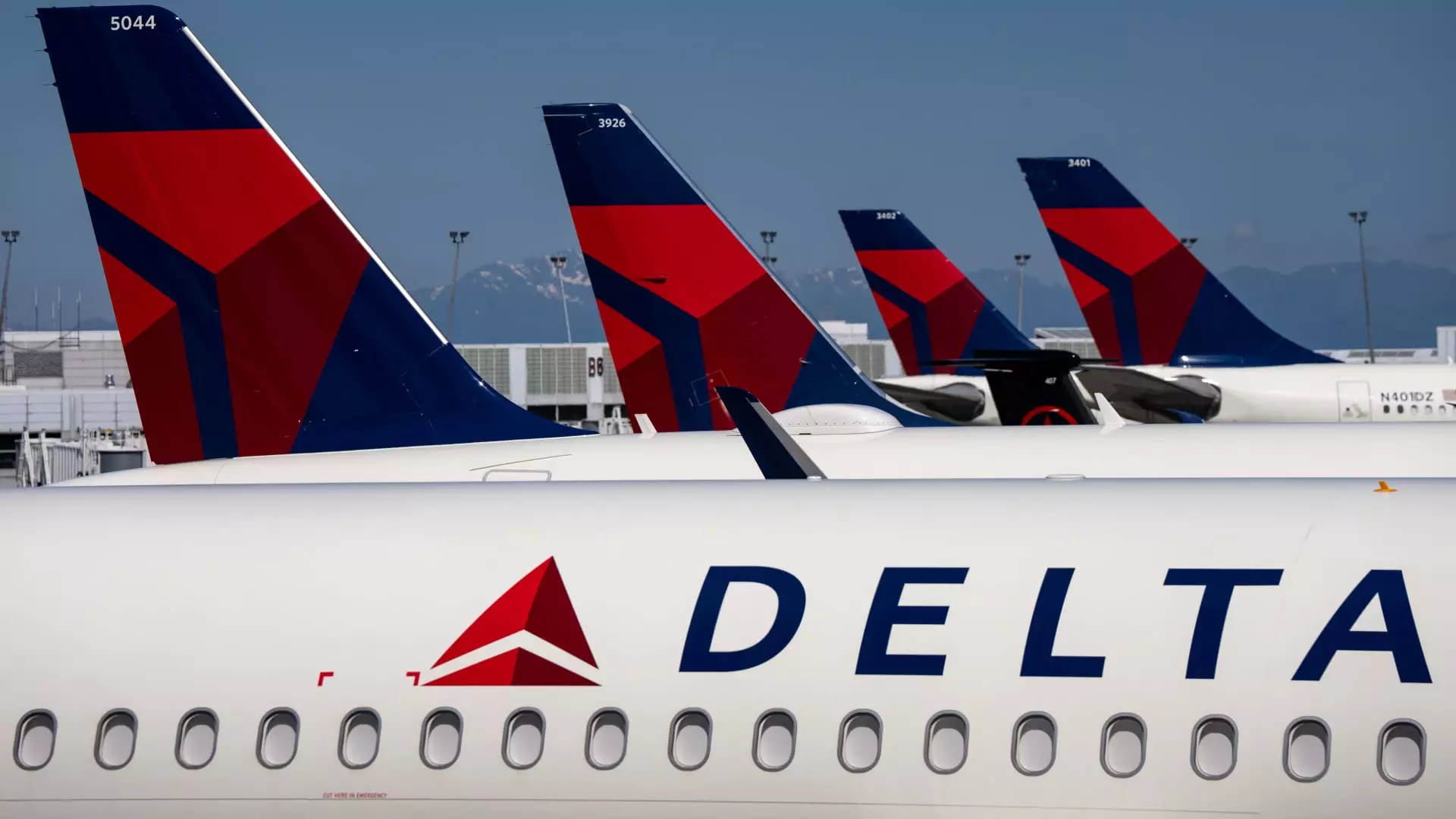Delta Air Lines recently announced a freeze on its capacity expansion for the latter half of 2025, marking a stark departure from the earlier optimism that portrayed 2025 as a breakthrough year for air travel. The airline’s CEO, Ed Bastian, attributed this stagnation to a marked decline in consumer bookings and shifting trade policies initiated by the Trump administration. These economic currents seem less like a natural ebb and flow of the market and more like a tidal wave threatening to capsize the airline’s prospects. Such an abrupt shift creates an unsettling ripple effect, indicating that the broader economy could be teetering on the brink of uncertainty.
Bastian’s perspective is indeed alarming; pointing out that the very regulations he once praised have turned into detrimental factors for demand. The airline’s forecast for second-quarter revenue, which could range from a two percent decline to a two percent increase, signals turbulence on the horizon. This delicate balance on the revenue scale betrays an evident lack of consumer confidence, a trend that quintessentially reflects the precarious state of the American economy.
The Corporate Landscape: A Diminishing Appetite for Travel
In a revealing downturn, Delta reports that both corporate and leisure travel demand have not just plateaued but are, in fact, retracting. Bastian mentioned that business travel—which grew at a vigorous pace at the beginning of the year—has since faltered as companies reevaluate their travel expenditures. This is yet another stark reminder that the government workforce is undergoing cuts, creating a circle of constraints that limits spending across various sectors. It’s important to note how these decisions change human behavior; company reluctance to invest in travel reflects a broader sentiment of economic wariness.
The irony isn’t lost that Bastian had previously characterized the Trump administration’s regulatory approach as potentially beneficial. Now that perspective has morphed into frustration as Delta reconsiders its growth trajectory amid plummeting consumer expenditure patterns, which, let’s face it, feel less like a benign cycle and more like a coordinated economic setback.
Consumer Confidence: The Invisible Hand at Work
There’s an undeniable connection between consumer confidence and travel habits. As recent reports indicated, there’s witnessed a significant decline in consumer sentiment over the past six weeks. The very air travel industry that seemed bulletproof is now wrestling with a confidence crisis. The silver lining—if you can call it that—is the resilience seen in international and premium travel, which Bastian acknowledges. But this niche is not enough to offset the broader issues at play, where main cabin bookings continue to disappoint.
Consumers are becoming increasingly cautious about discretionary spending, and who can blame them? In an age where job security feels increasingly fragile, the last thing one wants to do is book a flight to a potentially extravagant getaway. Instead, people are opting for savings over splurging, which flips the traditional travel economy on its head. As Delta pulls back on expansion, it crystalizes the dire consequences of not reinvigorating consumer confidence in the market.
Analyzing the Chain Reaction in the Airline Industry
Delta’s cautionary tale is likely just the beginning. According to analysts, this announcement could signal the start of a series of capacity reductions across all major U.S. airlines. The precarious dance of economic uncertainty surrounding global trade is a critical factor leading to this behavior, and it’s fair to argue that a larger reckoning is at hand. Who knows how many other airlines might follow suit, dampening the entire aviation sector?
With Delta paving this path of reluctance, we can expect its competitors like United Airlines and American Airlines to reassess their growth strategies as well. Wall Street’s expectations and earnings estimates have already been slashed across the board due to these emerging patterns of weak demand. This downturn raises a grim question—how long can the airline industry sustain its profitability if the tide continues to turn against them?
The Parameters of Economic Control
In an environment where economic factors are largely beyond an airline’s control, the strategies of margin protection and cash flow management become essential. Bastian’s assertion that the airline must focus on maneuvering what it can control emanates from a sensible understanding of business fundamentals, but also reveals the discomforting reality hanging over the industry. This reactive approach can only stave off disaster for so long; proactive measures should emerge in tandem, but from whom and when?
Indeed, Delta’s recent commitment to serving as “the most profitable U.S. airline” now feels like a hollow aspiration buried under layers of shifting policies and waning demand. As we reflect on the gravity of the situation, it becomes clear that the airline industry stands at a crossroads, and the decisions made today will shape the trajectory of travel for years to come.

